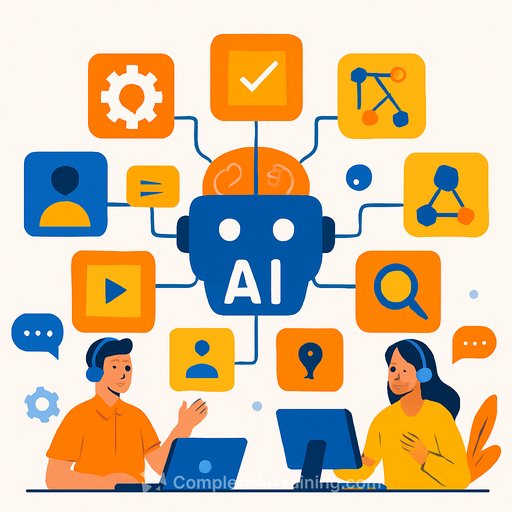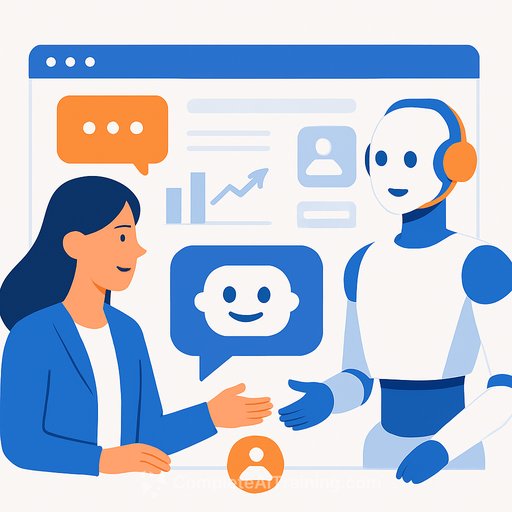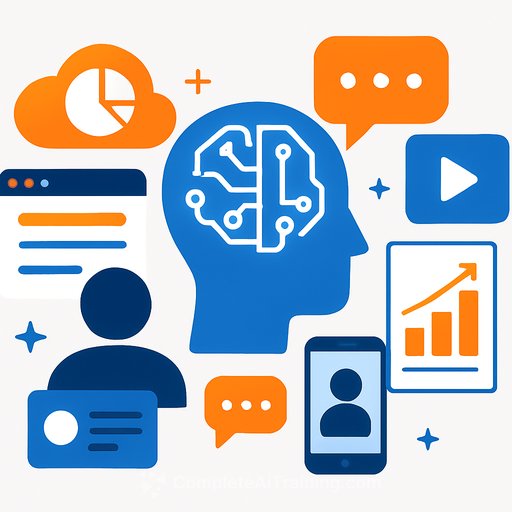Agentic AI Tools Reshaping Customer Experience
Agentic artificial intelligence (AI) tools are changing how organizations manage customer experience (CX). These systems don’t just respond to requests—they plan, act, and adapt in real time. Unlike traditional chatbots, agentic AI tools handle customer needs proactively, learn from interactions, and connect across multiple platforms.
This shifts CX from simple response automation to orchestrating the entire customer journey. For customer support teams, this means fewer manual tasks like ticket triage, delivering personalized assistance at scale, and smoothly managing workflows across sales, support, and marketing.
“AI and automation in general are tools to transform CX,” says Nao Anthony, senior manager of operational excellence at Commonwealth Bank. According to CX Network’s Global State of CX 2025 report, AI-powered technologies are the top trend impacting CX practitioners this year.
Here are eight standout free agentic AI tools that can boost your CX with no licensing fees or heavy coding required.
1. AskUI
AskUI lets AI agents visually interact with interfaces just like humans. It doesn’t rely on APIs but “sees” buttons, forms, tables, and dashboards, then acts on them in real time.
This is especially useful for CX teams dealing with legacy software or fragmented systems without easy integration options. For instance, AskUI agents can log into a customer management system, update records, and generate reports by visually navigating the interface.
2. AutoGPT
AutoGPT is a popular open-source autonomous agent system. It breaks down high-level objectives into smaller tasks and executes them sequentially.
For example, it can analyze thousands of customer feedback entries and generate recommendations for product or service improvements. It can also perform online research, gather resources, and adjust strategies automatically, making it ideal for startups and small teams needing automation without large support operations.
3. LangChain
LangChain offers a developer framework to create memory-enabled agents that handle complex queries and workflows. These agents retrieve documents, connect with APIs, and maintain context across conversations.
This means customers don’t have to repeat themselves, and bots can pull order histories, access knowledge bases, and provide personalized answers independently. Its high customizability lets CX teams build agents that fit unique workflows.
4. CrewAI
CrewAI allows building “crews” of AI agents that collaborate on customer-facing workflows. Each agent can have a specific role like resolving tickets, analyzing feedback, or managing escalations.
The agents work together to reach the end goal. CrewAI integrates smoothly with enterprise tools like Salesforce, Slack, and Zendesk, allowing easy embedding without disrupting existing CX systems.
5. AutoGen
Microsoft's AutoGen is an open-source framework for collaborative multi-agent systems. It’s useful when multiple agents need to coordinate across departments.
AutoGen can automate ticket routing, manage escalations by involving the right virtual specialists, and create dialogue between agents to solve customer issues faster. Backed by Microsoft, it supports scalability and enterprise-grade integration, suited for large, complex teams.
6. Freddy AI (Freshworks)
Part of the Freshworks suite, Freddy AI lets CX teams design intelligent, no-code agents for common support scenarios. It includes prebuilt templates for tasks like order tracking, subscription management, and refund processing.
The no-code interface means non-technical staff can build and deploy agents easily without IT support, making it a practical entry point for teams starting with agentic AI.
7. Hugging Face Open Computer Agent
This free semi-autonomous assistant interacts with web environments by browsing websites, filling out forms, scraping data, and simulating human-like interactions.
CX teams can use it to update customer profiles or extract insights from online surveys, freeing human agents to focus on higher-value interactions by offloading repetitive web tasks.
8. Relevance AI
Relevance AI is a lightweight, no-code platform for creating custom AI agents, with a free plan offering daily usage credits.
Its agents automate research, customer feedback collection, ticket routing, and survey analysis. CX teams can quickly prototype and deploy agents without deep technical skills, making it a low-risk option for experimenting with agentic AI.
These tools offer practical options for customer support teams to reduce manual work and deliver more personalized, efficient service. For those interested in learning more about AI applications in customer support, exploring Complete AI Training’s courses for customer support professionals can be a helpful next step.
Your membership also unlocks:





